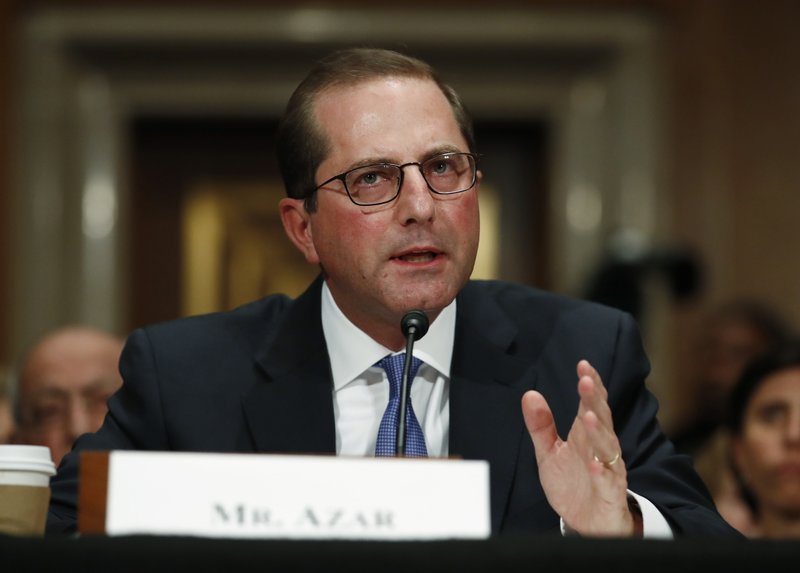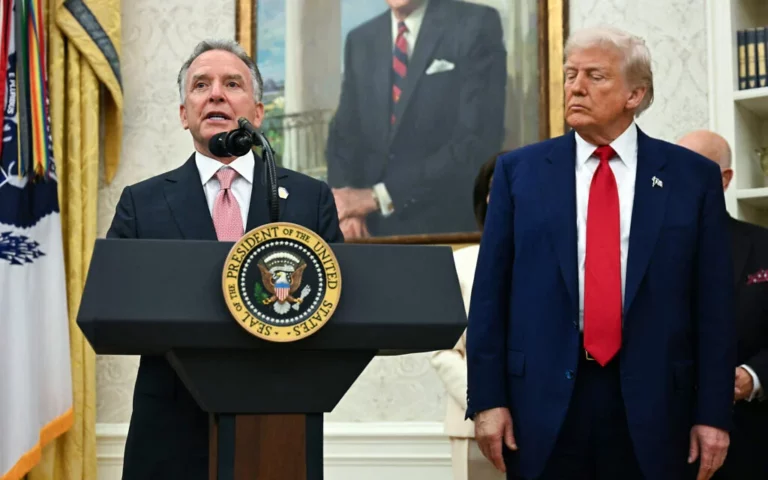President Donald Trump’s pick for health secretary said Tuesday he’s wary of a broad government role in negotiating prescription drug prices, arguing that it may lead to reduced access for patients.
Alex Azar, a former pharmaceutical and government executive, told the Senate Finance Committee that he believes drug prices are too high and he’s committed to trying to lower them.
But he said allowing Medicare to negotiate drug prices across the board would risk restricting choice for patients, since the government would have to establish an approved list of discounted medications.
As a candidate, Trump called for allowing Medicare to negotiate drug prices, but his administration hasn’t put forward any major strategy.
Azar’s comments came under questioning by Sen. Debbie Stabenow, D-Mich., who said she’s concerned about what direction he would take if confirmed. The finance panel is expected to vote soon on sending Azar’s nomination as secretary of the Department of Health and Human Services to the full Senate for a confirmation hearing.
Stabenow asked Azar if he favors allowing Medicare’s prescription drug program — known as Part D — to negotiate with the pharmaceutical industry, which is currently prohibited.
Azar responded that the private insurance plans delivering the drug benefit are already negotiating some of the best rates for patients.
“For the government to negotiate, we would have to have single national formulary,” Azar said. “I don’t believe we want to go there,” adding it would restrict access.
Azar said he favors focused negotiations, such as when the government is buying a large quantity of particular drug. He also said negotiations could potentially help with the cost of drugs provided through Medicare’s outpatient coverage, known as Part B. Those medications include cancer drugs that administered in doctors’ offices. He provided no additional details.
A Yale law graduate and policy expert with a conservative political pedigree, Azar would be returning to HHS after serving in senior posts in President George W. Bush’s administration. He would head a $1 trillion department with 80,000 employees, responsible for major health insurance programs, drug safety and effectiveness, public health, and medical research.
Azar, 50, spent much of the last 10 years as a senior executive for drug maker Indianapolis-based Eli Lilly and Co. The company has drawn criticism from patient advocacy groups for price increases to one of its biggest products: insulin, used to treat high blood sugar for nearly 100 years. Other drugs also shot up in price, including medications for osteoporosis and attention deficit disorder.
Americans consistently rank the high cost of prescription drugs among their top health care priorities, ahead of divisive issues like repealing former President Barack Obama’s health care law.
Before resigning from Eli Lilly about a year ago, Azar built a financial portfolio now worth $9.5 million to $20.6 million, according to disclosure records filed with the Office of Government Ethics.
Food and Drug Administration Commissioner Scott Gottlieb also has faced scrutiny for receiving consulting payments from drug makers and medical device companies when he worked in the private sector. Since taking office, Gottlieb has pushed efforts to lower drug prices by reworking FDA drug reviews to increase competition
If confirmed, Azar would be Trump’s second HHS secretary, replacing Tom Price, who resigned under pressure after Politico reported he was taking private charter flights at taxpayer expense.
(AP)











